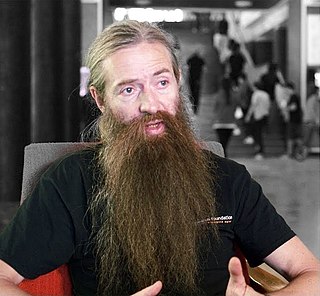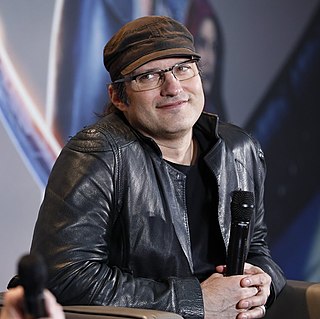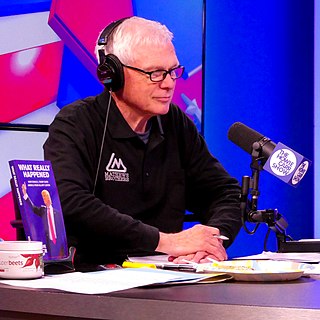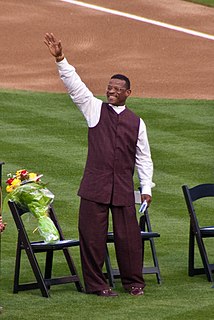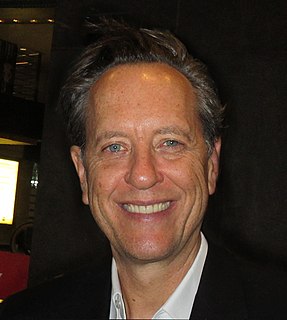A Quote by Aubrey de Grey
It has always appalled me that really bright scientists almost all work in
the most competitive fields, the ones in which they are making the least
difference. In other words, if they were hit by a truck, the same
discovery would be made by somebody else about 10 minutes later.
Related Quotes
Gareth [Edwards] was very much about including everyone in what we were making, so he would cut together different scenes to show us what we were making. And the crew, cast, everyone would go into a theater there at Pinewood Studios and watch 10 minutes of what we were making. It was always so exciting. It looked amazing, and the music was huge.
All those years I had been making movies because I loved movies, and that's what made all the difference. If you're doing it because you love it you can succeed because you'll work harder than anyone else around you, take on challenges no one else would dare take, and come up with methods no one else would discover, especially when their prime drive is fame and fortune. All that will follow later if you really love what you do. Because your work will speak itself.
Historically, very few discoveries were made out of thin air. Most of the greatest insights depended upon the intellectual ecology in which the scientists lived. A certain critical mass of "new findings" occurred, and bright people all over the world found out about it, and several read the tea leaves the same way.
You know, back in the 1950s and '60s, when J. Edgar Hoover was making the FBI the respected organization it used to be, oftentimes they would find a fugitive and basically have his house surrounded, and then put out a press release saying he was on the top 10 most wanted list. And 10 minutes later, he'd be arrested.
The problem I've always discovered in my own work when this kind of thing happens when you hit the wall is there's almost always a reason. You've almost always made a mistake in the initial conception of the project. You misapprehended something or you thought something would work and now you're three quarters on the way through and you see that it doesn't work.
A good friend of mine took me out and had me hit off a tee. He made me understand what was my strike zone and - with my speed - the importance of making contact. So I give him a lot of credit for changing my game and making me the player I became. He showed me how to work on me and my game, and not worry about patterning myself after someone else and focusing on what they were capable of doing rather than what I was capable of doing.
Progress is the exploration of our own error. Evolution is a consolidation of what have always begun as errors. And errors are of two kinds: errors that turn out to be true and errors that turn out to be false (which are most of them). But they both have the same character of being an imaginative speculation. I say all this because I want very much to talk about the human side of discovery and progress, and it seems to me terribly important to say this in an age in which most non-scientists are feeling a kind of loss of nerve.
Oskar Schell: If the sun were to explode, you wouldn't even know about it for 8 minutes because thats how long it takes for light to travel to us. For eight minutes the world would still be bright and it would still feel warm. It was a year since my dad died and I could feel my eight minutes with him... were running out.
